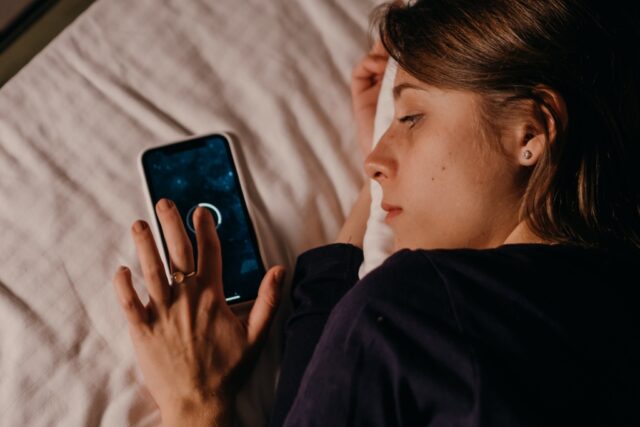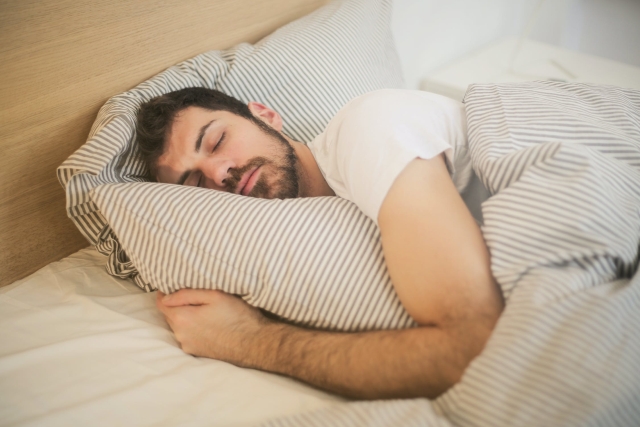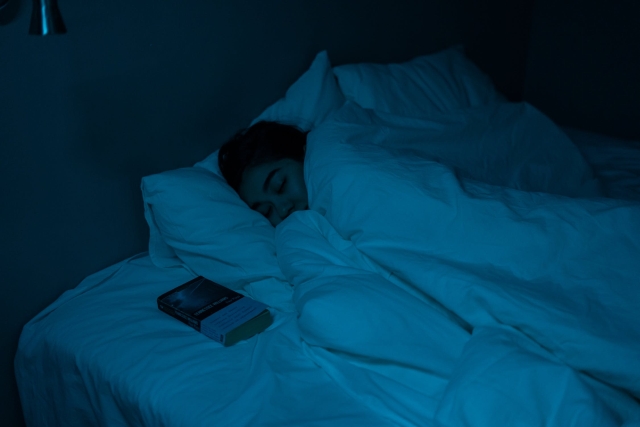
If you are a parent, you are likely familiar with the mental anguish of sleep training an infant. Your child goes through numerous different cycles, sometimes waking you up at 3 AM. Consistency is the key to success, but you might just be too exhausted and give in to bad habits. Sleep training yourself isn’t much different to sleep training an infant. You probably know what to do but aren’t consistent about following the recommendations. For most people, there comes the point where they crack. They simply can’t fathom going through another day being exhausted, irritable, and unable to string two coherent sentences together. Something needs to change.
Sleep might feel elusive, but it isn’t unobtainable. The National Institutes of Health recommends getting seven to nine hours of sleep every night. A lack of sleep increases stress levels, and stress interferes with sleep. The only thing to do is find a way to break the cycle by making healthier lifestyle choices. Check out our recommendations for how to sleep and train yourself.
Routine

Just like with kids, routine is everything when it comes to ensuring a good night of sleep. When we talk about having a routine, it is more than simply going to bed at roughly the same time each night, although that is important for your body’s natural internal clock. Consider the entire process of getting ready for bed in that last hour or so. With kids, you probably have it down pat with a bath, teeth brushing, two stories, a glass of water, and a good night kiss. You can make your routine your own, but try to stick to it. Do what helps you relax, whether it’s having a cup of herbal tea and reading a magazine, listening to an audiobook, or having a bubble bath.
Weekends count
Don’t let your routine go out the window just because it’s the weekend. If you vary your bedtime or sleep routine to a large degree over the weekend, then you’ll be exhausted once again come Monday morning. Ideally, wake at the same time on weekends, and if you need some extra shuteye, then sneak in an afternoon nap.
Nap smart

At certain times, there is nothing better than a power nap. However, if you find yourself constantly needing a nap, then it is likely that they are only serving to be counterproductive. The naps may cause you to struggle to sleep and remain asleep, which could make you more tired the following day. The only way to fix it and get a consistent good night of rest is to break the cycle.
Ditch the screens

How often have you found yourself moving from your desktop to your phone and then to an iPad? Add in your e-reader and television, and we find ourselves constantly swapping one screen for another. Put down your devices and make it a rule to spend the last hour before bed not looking at a screen.
Use guided meditation apps
Some people find that guided meditations or short bedtime stories help them wind down. If you have nomophobia about the idea of getting rid of your phone, then a sleep app like Calm or Headspace can be a great alternative.
Get outside

Exposing yourself to sunlight first thing in the morning is the ideal way to make your body naturally wake up. However, sometimes it isn’t possible to get out as much as we would like, in which case a light therapy lamp can help. These are known to boost energy and improve mood, while increasing focus and regulating sleep. If you live in a location that involves dealing with those dreary winter mornings devoid of sunshine, then make a point of getting outside during the short daylight hours for at least half an hour. This is the perfect time to tackle our next suggestion.
Get your steps in
It will help your sleeping patterns if you find a form of exercise that you love and stick with it. Don’t think that you need to join a sports team or get a gym membership; so long as you’re doing some form of physical activity, that’s all that counts. In addition to making your body tired, exercise is a stress reliever, so it’s a win-win situation. It is preferable to avoid exercise in the hours before bed, though, as the activity can keep you awake.
Change up your meals

A large evening meal can cause havoc on your sleep cycle, particularly if it is overly rich, acidic, or spicy. While you are trying to sleep train yourself, opt for a larger lunch and then a smaller evening meal. If you feel like you need a late-night snack then grab some walnuts which are rich in melatonin which is your body’s natural sleep aid. If you want to go all-in for one week to better sleep, we highly recommend limiting or completely cutting out alcohol right now as well. You might think that it is making you drowsy, but that nightcap is messing with your body’s ability to get into a proper sleep cycle.
Limit the light

Make your bedroom as dark as possible. This includes limiting light from sources such as streetlamps, appliances, clocks, or electronics. Think about installing blinds or black-out curtains, or try wearing a sleep mask like you would on an airplane. If you are the type to wake in the night for a bathroom break, then ensure that lights are dimmed, which will help you get back to sleep quicker. Even better, try to limit your fluid intake in the hours before bed.
Talk to your doctor
According to Wellspring Meds, there are a variety of affordable over-the-counter medications that include melatonin, a known sleep aid. If you are continuing to fight sleep, then it is best to speak to your family physician. They will be able to exclude other potential medical reasons for your lack of sleep. Not getting enough slumber is a common issue for many adults. However, when a lack of sleep starts to interfere with your mental and physical health, things need to change. Focus your efforts on yourself for a week and follow our recommendations to help you get some much-needed shuteye.








